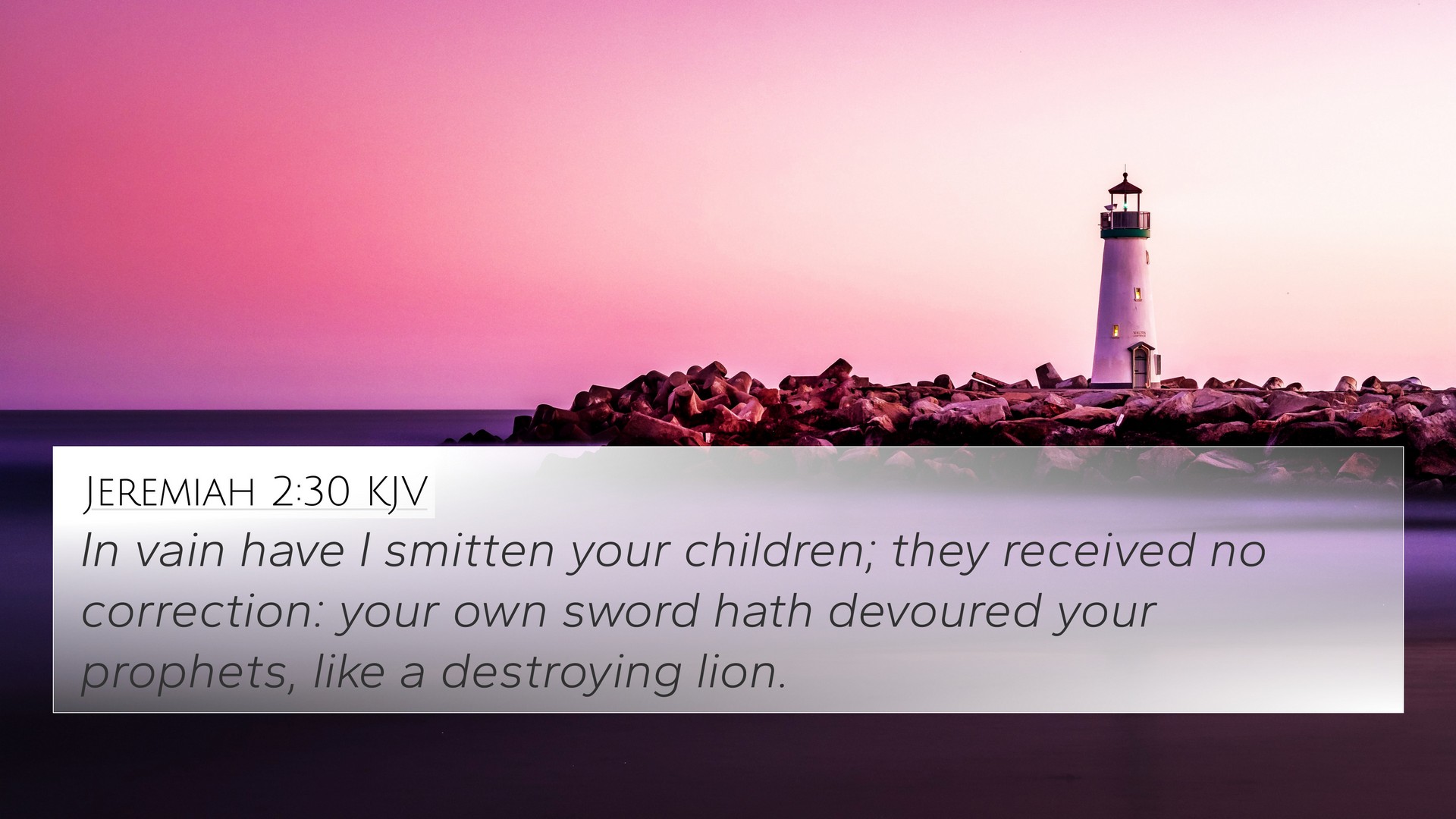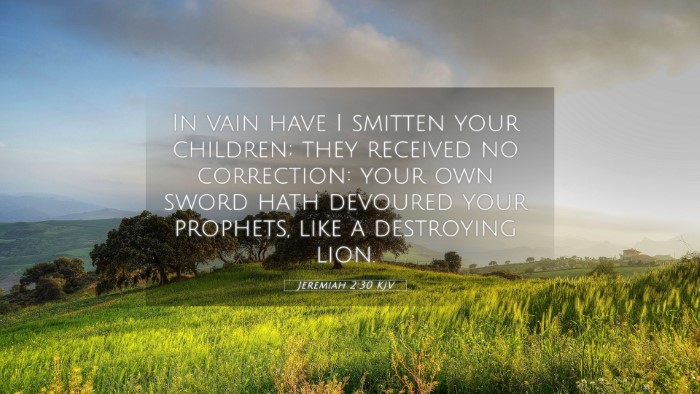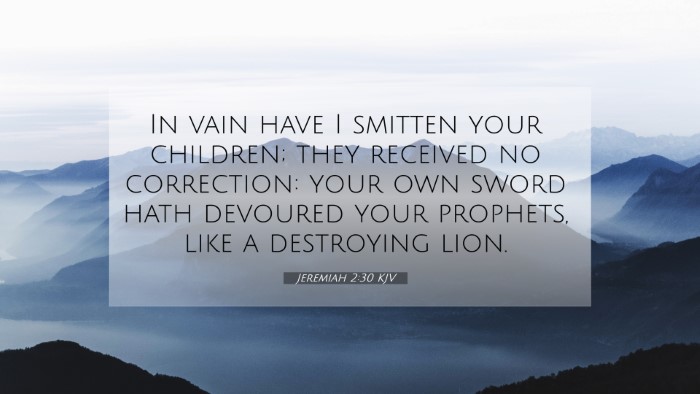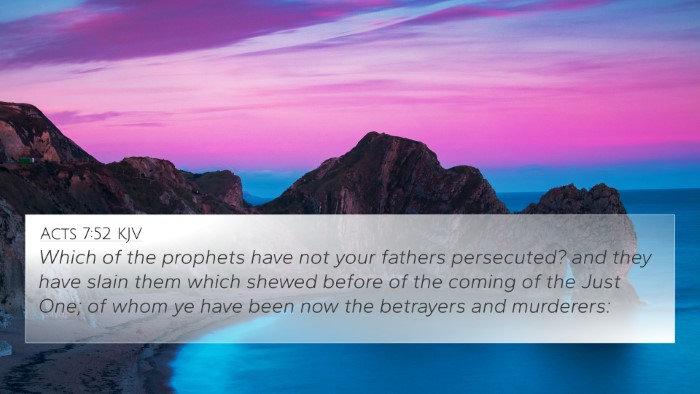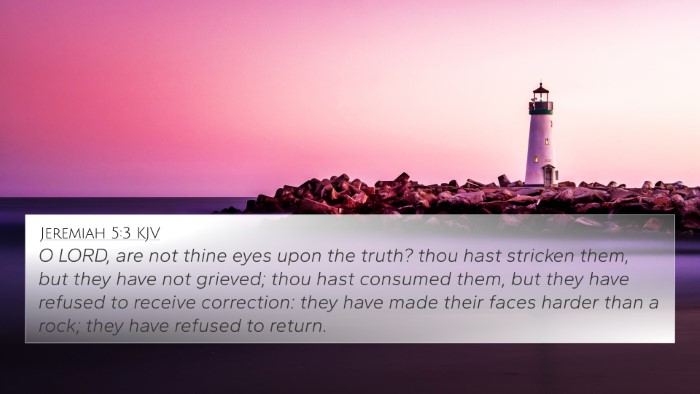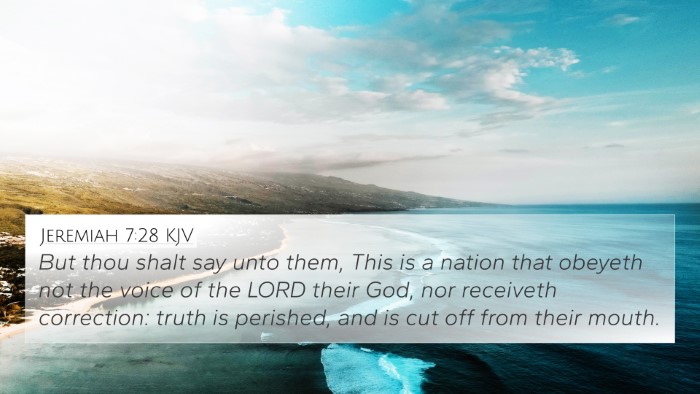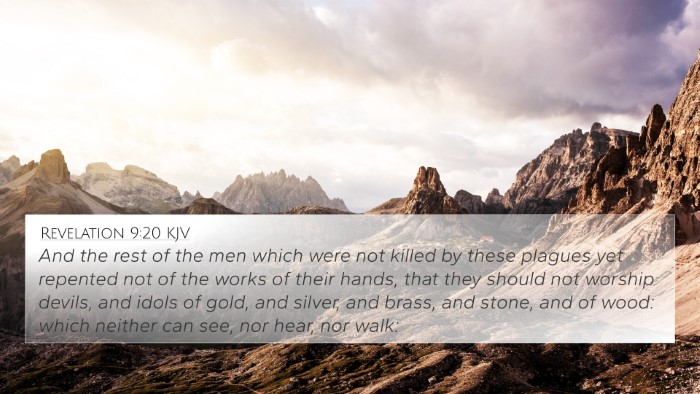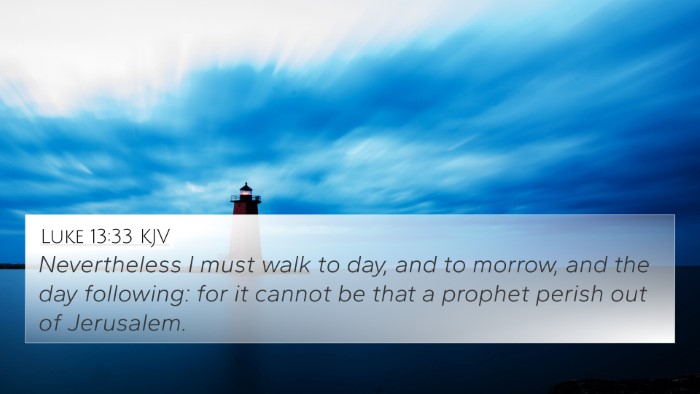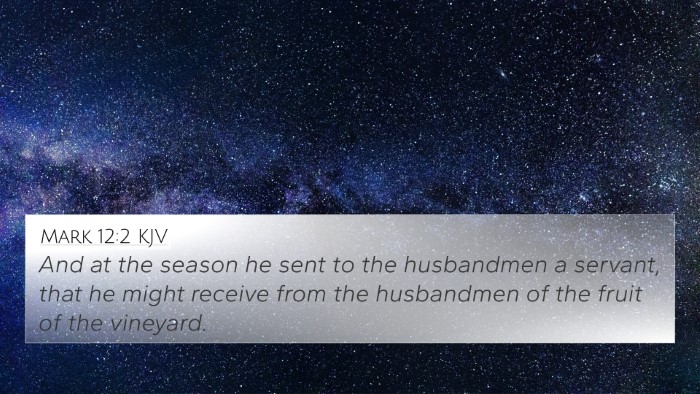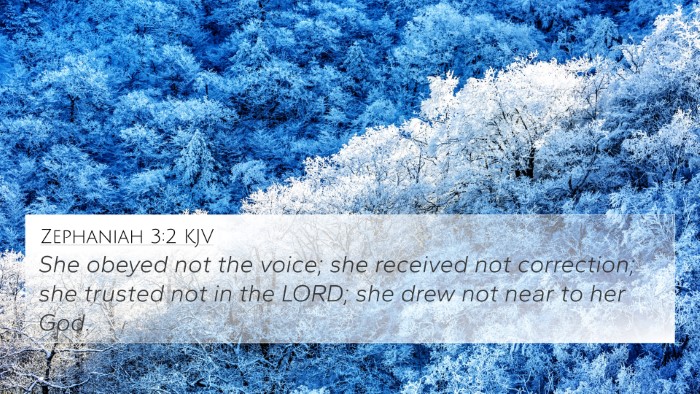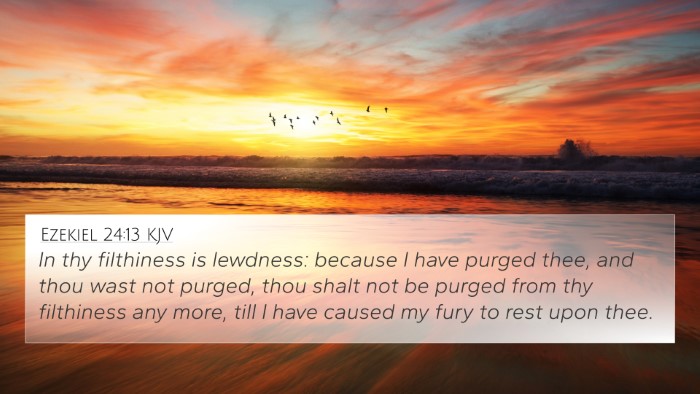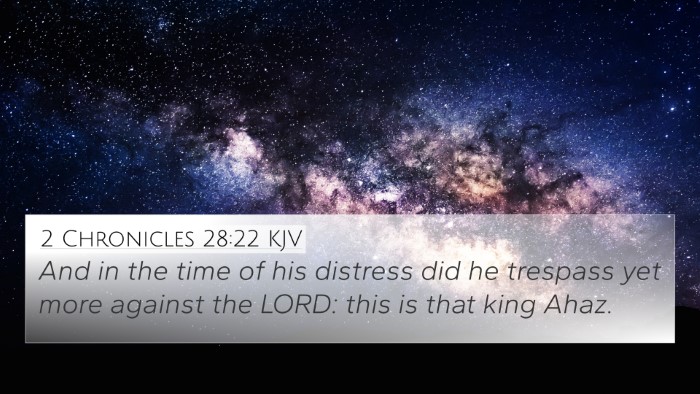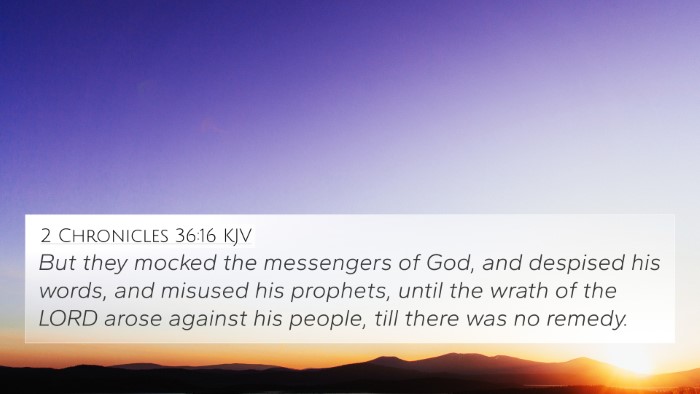Jeremiah 2:30 meaning and interpretation
Jeremiah 2:30 states, “In vain have I smitten your children; they received no correction: your own sword hath devoured your prophets, like a destroying lion.” This verse encapsulates God’s lamentation over Israel’s disobedience and their failure to heed divine correction. Here we explore the insights from notable public domain commentaries including those by Matthew Henry, Albert Barnes, and Adam Clarke.
Context of Jeremiah 2:30
This verse falls within a broader context where God is addressing the nation of Israel for their unfaithfulness. Through the prophet Jeremiah, God expresses His sorrow over Israel's rebellious spirit despite His continuous attempts to lead them toward Righteousness. The language of “smitten” speaks to God's judgment, while “your own sword hath devoured your prophets” reflects the hostility faced by true messengers of God.
Insights from Commentaries
1. Matthew Henry’s Commentary
Matthew Henry emphasizes the futile nature of divine chastisement due to Israel's unrepentant heart. He points out that the judgments that were meant to lead them back to God were ignored, showcasing the hardness of their hearts. Henry highlights that despite God’s efforts, the people persisted in their wicked ways, leading to greater calamity.
2. Albert Barnes’ Notes
Albert Barnes interprets the imagery of “your sword” as a metaphor for violence and internal discord among the people. He reflects on the destructive nature of their actions, implying that their own rebelliousness turned against them. Barnes discusses how the prophets, who were sent to guide them, were met with resistance, illustrating the tragic cycle of rejection and consequence.
3. Adam Clarke’s Commentary
Adam Clarke delves into the disappointment expressed by God in this verse. He notes that the phrase “in vain” speaks volumes about the unresponsiveness of Israel to divine correction. Clarke points out the intention behind God’s discipline was not punitive but restorative, aiming to bring the people back to Himself and avoid further disaster.
Cross-references and Related Verses
- Proverbs 29:1 - “He, who being often reproved hardeneth his neck, shall suddenly be destroyed, and that without remedy.” This aligns with the idea of refusing correction.
- Matthew 23:37 - “O Jerusalem, Jerusalem, thou that killest the prophets, and stonest them which are sent unto thee!” This connects the rejection of prophets in both testaments.
- Isaiah 1:5-6 - “Why should ye be stricken any more? ye will revolt more and more…” Reflects on the stubbornness of Israel against divine instruction.
- Hebrews 12:6 - “For whom the Lord loveth he chasteneth, and scourgeth every son whom he receiveth.” This reinforces God’s discipline as a sign of love.
- Jeremiah 5:3 - “O Lord, are not thine eyes upon the truth? thou hast stricken them, but they have not grieved…” shows the persistent unresponsiveness of the people.
- Luke 13:34 - “Jerusalem, Jerusalem, which killest the prophets, and stonest them that are sent unto thee…” parallels the message of rejection in Jeremiah.
- 1 Thessalonians 2:15 - “Who both killed the Lord Jesus, and their own prophets, and have persecuted us…” describes the historical continuum of rejecting God’s messengers.
Thematic Connections
The themes in Jeremiah 2:30 resonate deeply with the broader themes of discipline, rejection, and the struggle between divine love and human rebellion. This verse serves as a reminder of the importance of responsiveness to God’s voice and correction.
Conclusion
In summary, Jeremiah 2:30 serves as a profound illustration of Israel’s spiritual state and God's lamentation over their unresponsiveness to His correction. The insights from Matthew Henry, Albert Barnes, and Adam Clarke collectively deepen our understanding of the gravity of rejecting divine guidance.
Utilizing Cross-reference Tools
When studying verses such as Jeremiah 2:30, using tools for Bible cross-referencing enriches our understanding. A Bible concordance provides context and supports the study of connections between Bible verses. Engaging in cross-referencing Bible study methods allows one to uncover intricate links between Old and New Testament teachings, enhancing the comprehension of key themes.
